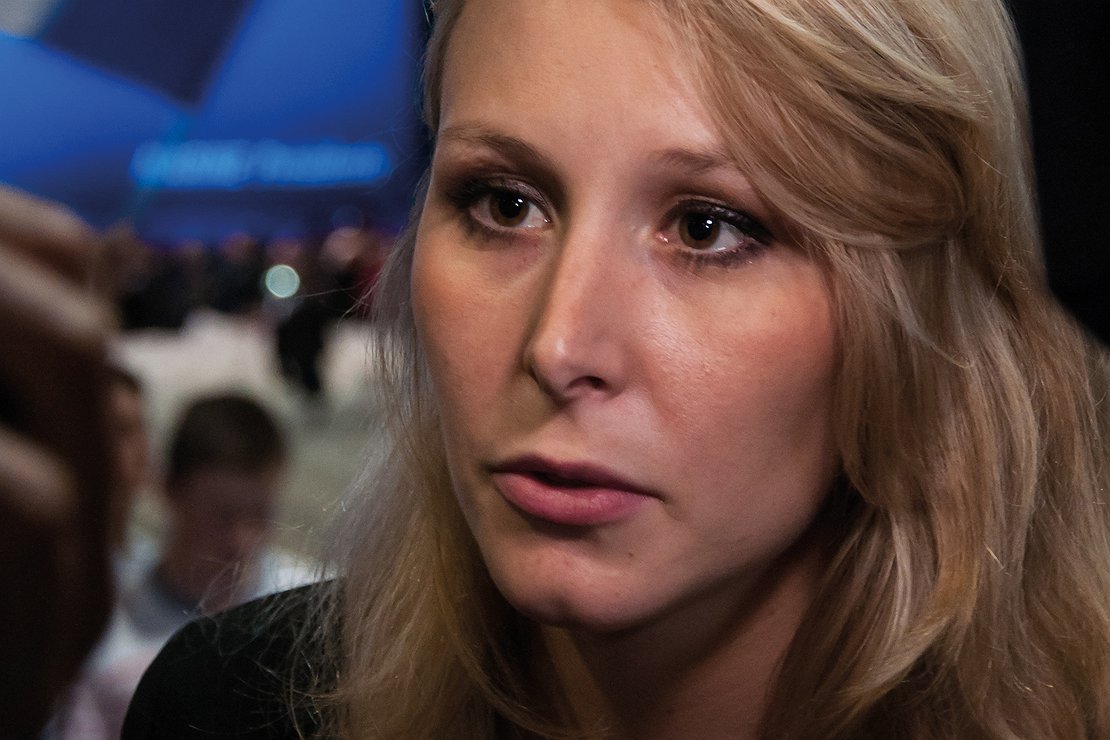
New private college in France:ISSEP – The Academic Counter Revolution
More than 50 years after ‘May 68,’ the left-wing revolutionaries of that time have achieved their goal: in every Western society, cultural Marxism shapes both individual morals and social values, history is rewritten from its vantage point, and politics is shaped according to its specifications. In short, cultural Marxism dominates all aspects of public and private life. Criticism of this doctrine of faith is not at all welcome, either in the private sphere or in the public sphere, because it’s common knowledge that ideology doesn’t sit well with reality.
But how could layers of mildew settle on Western societies and smother any resistance to victorious cultural Marxism?
It was the method. May ‘68 was not a one-off revolution, not a crashing collapse followed by the takeover of power by another group. No, May ‘68 was a creeping revolution that actually began many years earlier: The foundation was laid by the modern theology of the 1940s and 1950s, which challenged the Christian tradition. The Second Vatican Council institutionalized the destruction of the foundation (in many churches in the truest sense of the word) and thus destroyed immunity against the contemporary doctrines of salvation through socialism, boundless individualism and libertinage. Thus, after May ‘68, an unholy alliance of left-wing utopianism and a Christian sense of mission came about. Both groups, the socialist missionaries and the secularized clergymen, began their march through the institutions with the aim of interrupting the transmission of knowledge, culture and religion and creating a new, happy, just, progressive humanity on the basis of the human being as raw material: Since then, in religious education and catechism teaching in school people bake or have ‘group experiences;’ in history and in politics classes, as well as in the media, all problems are reduced to ‘social justice’ versus profit. Since then, anyone who lacks anything that someone else has is the ‘victim’ and ‘good,’ while the other who has something that someone lacks is a ‘perpetrator’ and ‘evil.’
Today, this rather simple, moralizing world view dominates world politics, everyday social coexistence and the debate on bioethical questions. It has led Western societies to where they are today. The over-65s are mostly conscious or unconscious cultural revolutionaries who have found their fortune in wealth and meaningless consumption, the under-45s are mostly cultural, historical, religious and philosophical illiterates without orientation. Western societies are therefore at a dead end. The only way out is to turn back, that is, a cultural counterrevolution aimed at returning to the cultural, historical, philosophical and religious roots of Western civilization.
Marion Maréchal, who is only 28 years old, recognized this necessity (she had the name ‘Le Pen’ of her aunt Marine added as a trademark when she entered political life and then discarded it after her return to civil life). She herself attended school with the Dominican Sisters of the Holy Spirit, a school congregation of the Society of Saint Pius X, which in France runs several schools that are not recognized by the state but are famous for their high standards. The Dominican Sisters were the only people in Marion's childhood who were willing to accept the granddaughter of the publicly outlawed Jean-Marie Le Pen into their school. There Marion encountered the works of the great philosophers of antiquity and the West, who had long since disappeared from the curricula of state schools and Catholic schools run under state control. It is therefore not without a certain irony that it was precisely the refusal of the tolerance-oriented state and semi-state schools to accept Marion that led them to form her brilliant mind in the classical way, so that today she is in a position to formulate a self-contained, logical and structured alternative to the cultural Marxist order of the present.
While still a member of parliament, Marion Maréchal-Le Pen expressed the need to create a right-wing counterweight to the elite state schools in which the establishment members of tomorrow will be formed in the spirit of cultural Marxism, “because civilizing values cannot be transmitted through elections.” One year after her voluntary withdrawal from the Assemblée Nationale, the time had come: on 22 June, Marion Maréchal invited interested parties to the inauguration of the Institut de Sciences Sociales, Économiques et Politiques (ISSEP) in Lyon, where the new university, not recognized by the state, is now competing with the established state Institutes d'études politiques (IEP) and Sciences Po Lyon. In contrast to state schools, in which open borders, globalisation and profit are propagated as ends in themselves, the ISSEP's four mottos are ‘excellence,’ ‘ethics in the exercise of professional responsibility,’ ‘rootedness in cultural identity’ and ‘commitment to the service of others and one's own country.’ This conservative orientation is underlined in the opening press release: It is the aim of the private university to “train versatile, cultivated leaders for business and politics who put their ambition at the service of projects that serve the common good of society.”
Excluded from the inauguration of the ISSEP were the representatives of the extreme left-wing media ‘Rue89 Lyon’ and ‘Libération.’ Marion Maréchal accuses ‘Libération’ of the headline of May 31, which read: “Maréchal, la revoilà,” (Maréchal or the Marshal is back), a pun with the title of a Vichy regime hymn of praise to Marshal Philippe Pétain in the 1940s. “I've been hearing this stupid joke since kindergarten. It gets on my nerves. That's why I'm taking revenge now,” Maréchal admitted frankly while having a drink with the journalists present.
Marion Maréchal is not only the founder of the ISSEP, but also the general manager of the university. She replies to the accusation that some of the teaching staff are linked to the old Front National by saying that there is indeed some overlap, but that she does not see any problem in this, since the university is open to anyone who feels they belong to the world of right-wing ideas. Members of the Republicans, the Christian Democrats and other right-wing movements such as Debout la France (DLF) are also involved in setting up the institution. The ISSEP is a “meeting place of intelligence.”
The list of academics involved in setting up the ISSEP reads like a ‘who's who’ of the French and Western right: Patrick Libbrecht, an entrepreneur, is the Honorary President. In the past he’s spoken at conferences of the Audace (audacity) civil society movement, where the traditional wing of the Rassemblement National (RN, formerly FN) meets the right wing of the Republicans (LR). He will be assisted by scientific directors Patrick Louis, a professor of economics and geopolitics at the University of Lyon III and general secretary of Philippe de Villiers' traditionalist Mouvement pour la France, and Jacques de Guillebon, a Catholic-traditionalist intellectual who, among other things, publishes the new monthly ‘L'Incorrect.’ The titles of the last three issues clearly show where it’s coming from: “Leaving 68 Behind,” “100 Percent Conservative” and “Allegedly Guilty” (in relation to the Western male). Other members of the Council of Science and Humanities are the royalist musicologist Yves-Marie Adeline de Boisbrunet, Guillaume Drago, a professor of law at the University of Panthéon Assas in Paris who speaks out against ‘marriage for all,’ the Catholic philosopher Thibaud Collin, who teaches in the Classes préparatoires (the very selective, two-year preparatory courses for the selection procedures of the Grandes écoles, the French elite universities) at the very elitist Catholic Collège Stanislas in Paris and is among others a member of the editorial board of “L'Incorrect,” the geostrategist Pascal Gauchon, editor of the magazine “Conflits” and until 1981 head of the neo-fascist splinter party Parti des Forces Nouvelles, the Russian military historian Oleg Sokolov, Raheem Kassam, UKIP member, advisor to Nigel Farage and head of Breitbart London, the American paleoconservative and “eigentümlich frei” author Paul Gottfried, who taught at the University of Pennsylvania, as well as other right-wing academics from France and abroad. According to Marion Maréchal, more than 120 lecturers have already expressed an interest in teaching at the ISSEP.
Who does the new private university appeal to? Marion Maréchal is clearly targeting France's conservative youth. The ISSEP should be the ground on which “all currents of the right can be found and realised.” It’s not only grades that are decisive for achieving university enrolment, but above all the personality of the candidate: Speaking to broadcaster RMC, Maréchal said: “We are trying to attract individuals whose curiosity and critical spirit, coupled with judgment, have a certain vision, which the current political and economic elite is so much lacking.” Despite tuition fees of 5,500 euros for the first year of the Master's program, which begins in September, there is great interest in the right-wing university. Already at the time of the official announcement, more than 60 people had pre-registered for the 25 to 30 places of the Master's program and more than 160 for the part-time program, for which tuition fees of 1,990 euros have to be paid. The private educational institution is financed exclusively by tuition fees and donations from private individuals and companies, that must, however, be 100% French. Donations from abroad are rejected on principle.
The contents taught at the ISSEP are a mixture of the programs of business schools, political science and general education. The final touches are put on the curriculum over the summer months. Marion Maréchal refuses to accept the accusation that the ISSEP is a political project. “This school is not linked to any party, nor is it dependent on any party. It wasn’t created to win elections. It’s a personal project and I forbid myself to use this school for political purposes. If there is something political about this school, then it is politics in the noble sense: to serve the community.”
Although the lack of state recognition remains a certain shortcoming, Marion Maréchal is sure that students enrol at her university not so much because of an academic title, but because of the content. To make the ISSEP even more attractive, there will be a partnership with other European educational institutions. To this end, Marion Maréchal will visit an Italian institution near Rome this year. She is also in contact with universities or academies in Ireland and Bavaria. Marion Maréchal will take exclusive care of the development of the ISSEP until February 2019, then she will set off for new shores and the university will have to take care of itself.
Translated from eigentümlich frei, where the original article was published on 6th October 2018.




